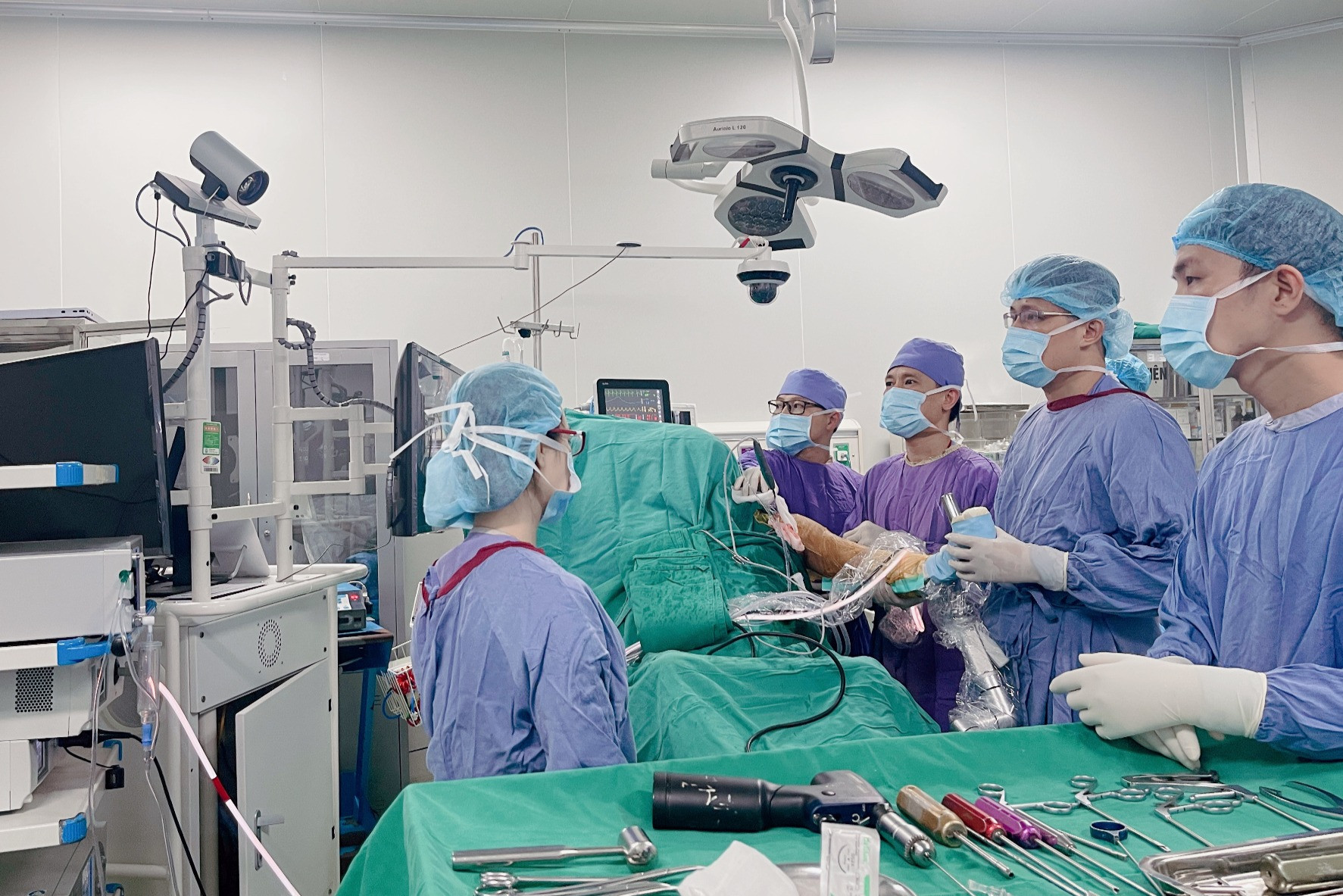
The 9th National Lung Disease Conference, jointly organized by the Vietnam Lung Association in Da Nang on October 20-22, had a thematic session on AI for lung disease diagnosis and treatment.
A report on building a system supporting diagnosis and giving geo-spatial epidemiology predictions of pulmonary tuberculosis with chest X-ray images was presented at the conference.
The scientific research project at the state level is carried out with an aim of building a digital X-ray image database about tuberculosis in Vietnam. At the same time, it also aims to developsoftware that supports the diagnoses, and software that gives geo-spatial epidemiology predictions. The software will be applied at some healthcare units at different levels.
The results of the study will support proactive screening of pulmonary tuberculosis using X-rays, and predict tuberculosis epidemiology through practical indicators.
The experts attending the conference said AI now plays an extremely important role in diagnosing and treating lung cancer, helping detect lung cancer in early age, analyze gene database, suggest the most suitable therapies for patients. and anticipate the treatment results.
This allows patients to receive early treatment that can improve treatment efficiency.
The experts commented that AI won’t be able to replace physicians, but physicians applying AI will replace ones who don’t use AI.
At the conference, a series of scientific research works in new technology were awarded with Ho Chi Minh Prize in Science and Technology in 2022, which serves as the scientific foundation for the process of fighting and stopping tuberculosis.
To date, scientists have shown that AI is helpful in diagnosing and treating many non-communicable diseases.
AI has been applied to diagnose, detect, and treat musculoskeletal injuries, helping doctors quickly assess, predict, and perform surgeries accurately.
Associate Prof Doctor Nguyen Manh Khanh, deputy director of the Viet Duc General Hospital. said AI can help discover musculoskeletal wounds very early.
Also, AI helps personalize the treatment for every patient. For example, in joint replacement, AI assists doctors to draw specific designs for every patient, based on his height, age, sex and level of injuries.
According to the HCM City Health Department, in the near future, obstetric hospitals in the city, including Hung Vuong and Tu Du, will try AI in cervical cancer screening.
The AI tool is CerviCare AI, a South Korean startup.The system has been trained on a huge database of more than 100,000 cervical images with both normal and abnormal signs. The system using AI will to help detect signs of cervical cancer early.
Linh Giao